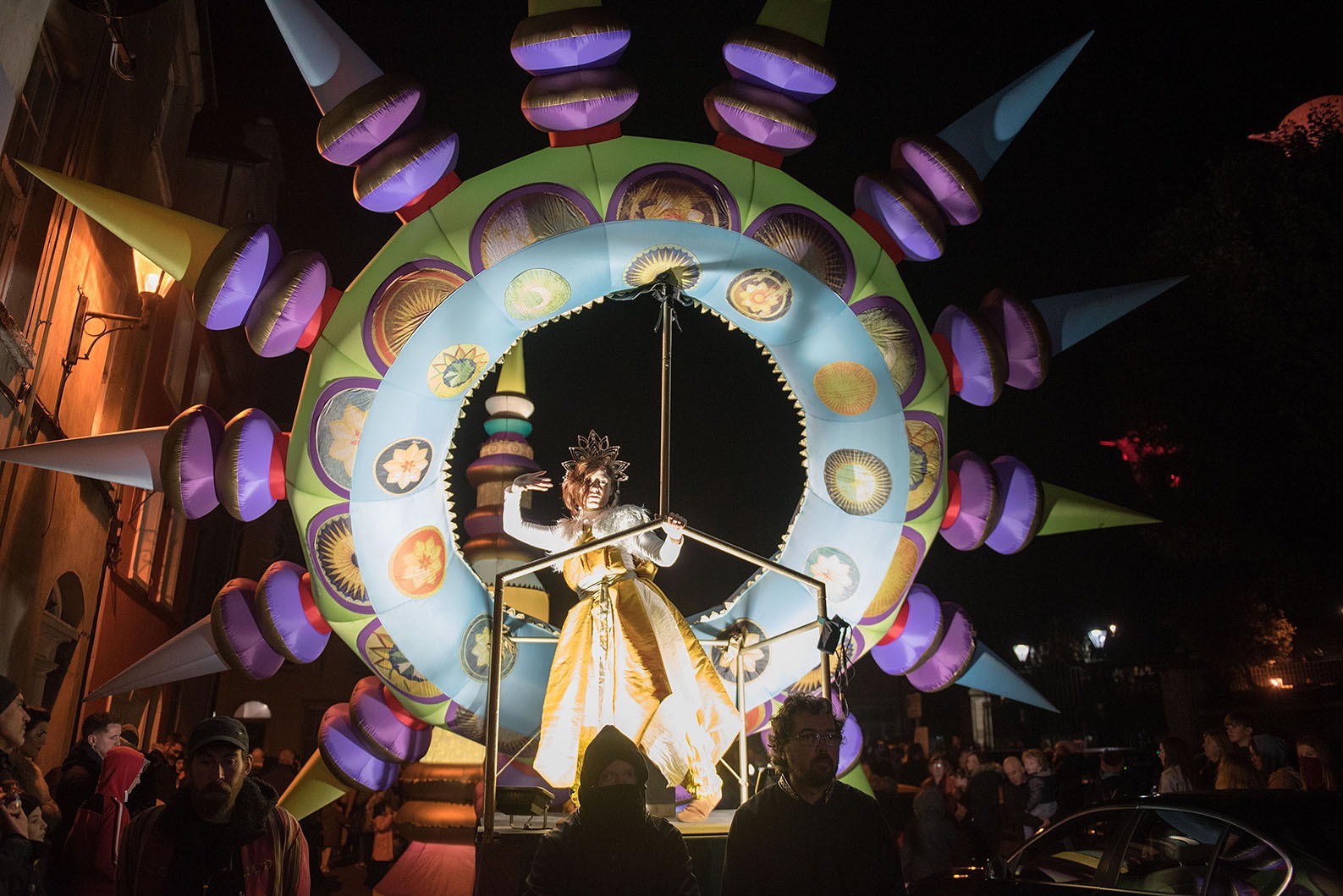A modern-day Samhain festival occurred in Derry, Northern Ireland and hosted approximately 120,000 people over the course of a four-day celebration.
Samhain, pronounced “Sow-win”, is a Pagan holiday celebrated in Scotland, Ireland and some parts of England. The name translates to “summer’s end” in Gaelic and marks the midpoint between the fall equinox and the winter solstice.
During the night of Oct. 31, it is believed the veil between the human and spirit world is at its thinnest due to the changing of the seasons, allowing fairies or spirits to cross over. The Samhain festival involves dressing up as monsters or animals to prevent the fairies from kidnapping or harming those of the human world.
“Halloween is mostly about trick-or-treating and parties; I feel like Samhain was much more meaningful and had a bigger cultural impact on the people who celebrate it,” Lauren Kramreither, an international exchange student studying in Edinburgh, Scotland told Vanguard.
One of the main attractions of the festival in Derry was the arrival of the winter king, who marks the change from the light half of the year to the dark half. The winter and summer king then take part in a ritual where the summer king is overthrown, as onlookers dressed in costumes used fire and drumming to narrate the change.
The festival also involves the speaking of Gaelic, a language which only 1.7% of Scotland’s population is able to communicate in, according to Scotland’s 2011 census.
“Samhain was definitely taken very seriously by everyone at the event,” Kramreither said. She reported that those dressed in costumes “stayed in character and even spoke Gaelic”
When Christianity began to take hold in Europe, the holiday was adapted into “All Hallows’ Eve,” as being Pagan was condemned under Christian rule. The holiday’s practices changed but continued to remember the dead and changing of the seasons.
Although these celebrations may sound different from the Halloween today, Samhain has influenced modern traditions in many ways. Turnip carving has since turned into pumpkin carving, and going door to door in costume is derived from Celtic practices where cake was given instead of candy.
Nick Manzer, another international student at the event told Vanguard Samhain felt more “spiritually inspired and meaningful than a traditional Halloween.”
“Halloween in North American feels more commercialized and commodified,” Manzer continued.
Though a more North American-style Halloween is also celebrated in the United Kingdom and is especially popular among university students, Samhain is a way to keep traditions and Pagan culture alive.
Manzer said he would be eager to attend Samhain again and urges anyone who gets the chance to attend to do so, as “actually being there and seeing it all happen felt meaningful and important to those celebrating.”






